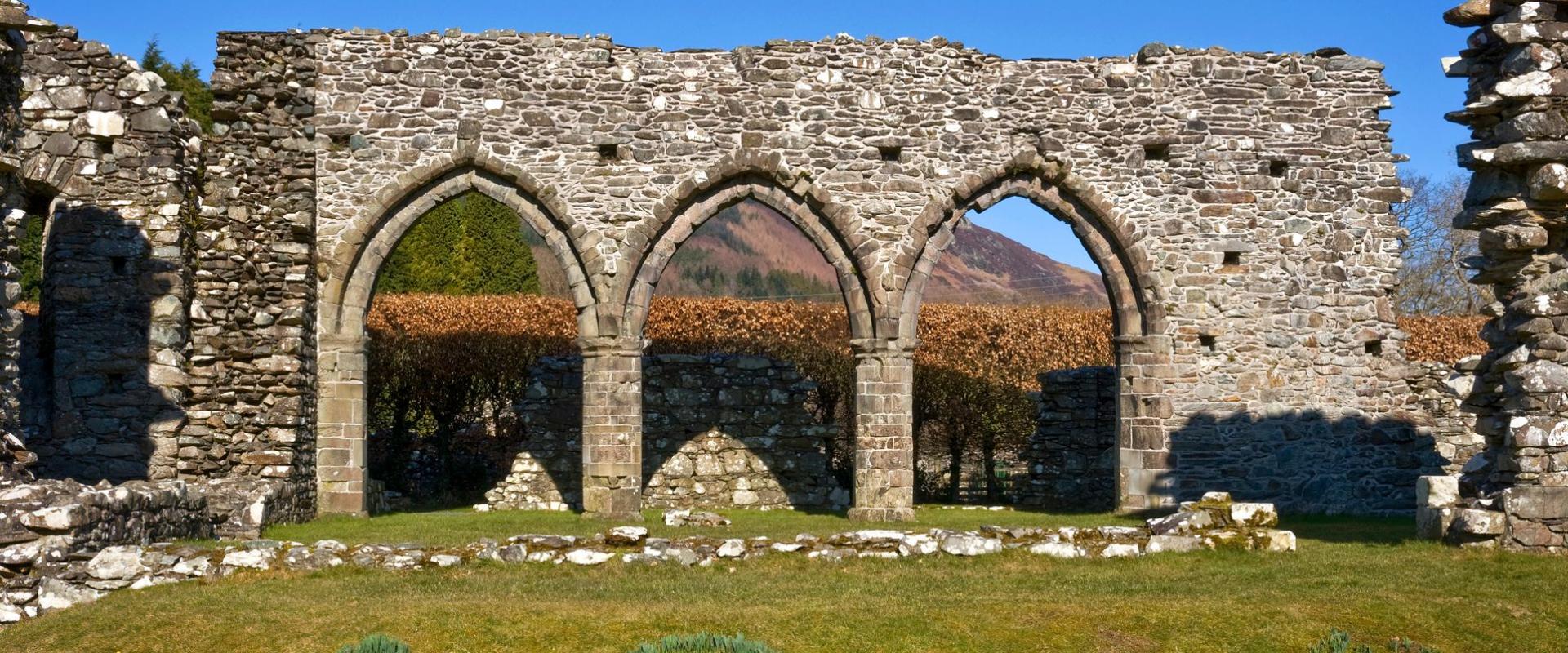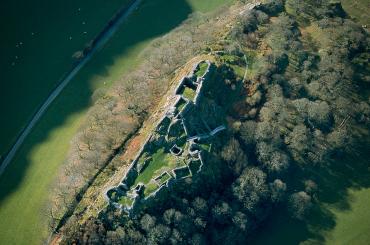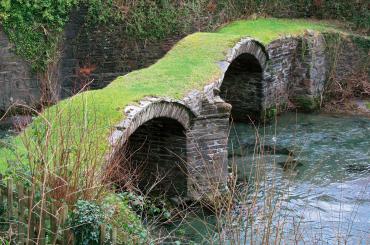Cymer Abbey

An example of Cistercian influence in medieval Wales
Cistercian monks were more than religious men. Worldly Cistercians were also pioneering sheep farmers and some of the first rural entrepreneurs. Their network of abbeys included Cymer, idyllically set at the mouth of the Mawddach Estuary.
Founded in 1198, it was one of their lesser settlements, suffering greatly during the conflicts between Wales and England in the 13th century. Nonetheless, substantial remains survive from this simple abbey church.
Opening times & prices
Opening times
| 1st April - 31st October | 10am–5pm |
|---|---|
| 1st November - 31st March | 10am–4pm |
|
Last admission 30 minutes before closing Closed 24, 25, 26 December and 1 January |
|
Visitor information
Car park
Small car park near entrance to site. No toilets.
Dogs welcome
Dogs on short leads welcome to access ground floor levels of the site.
Walking difficulty
Terrain: Level 1 – Accessible
Drone policy
Please read our policy information about flying drones at Cadw monuments: read the guidance
No smoking
Health & Safety
Care and attention must be paid when visiting this monument. It will be regularly exposed to the natural elements and may be slippery or muddy underfoot.
Appropriate footwear for the season and type of monument must be considered prior to your visit. Please only attend during the set opening hours, these have been chosen for your safety i.e. appropriate level of lighting.
Many of our monuments are located at areas of height, attention must also be paid therefore to the surrounding areas, ditches and moats when visiting.
Guardrails have been installed to prevent access to any areas of the site that we have deemed as dangerous or to prevent falls in specific areas. Please do not climb over or through any fixed installation.
Any handrail provided should be used to help you safely navigate historic steps, as these may be uneven and may be of different height.
As with all ancient monuments there is always a risk of stones being dislodged in bad weather, however, we manage this through extensive monitoring.
Climbing may result in serious injury.
There are several wild plants and flowers, although these are great pollinators, they may be poisonous to visitors and animals, we strongly advise you not to touch or allow dogs to eat any vegetation.
There may be shared access or neighbouring farmland that may involve the presence of grazing cattle or farm animals.
Please watch our health & safety film before visiting Cadw sites.
Iechyd a Diogelwch / Health and Safety
Please report any anti-social behaviour such as climbing, setting fires, graffiti etc. to CadwAccidentsReports@gov.wales
The following signs can be found around the site at key areas of risk, please pay attention where appropriate.
Falls from height
Slippery or uneven surfaces
Deep water
Falling masonry
Directions
Google MapPostcode LL40 2HE
what3words: ///fractions.juniors.drum
Unlimited access to Wales' past
Join Cadw for as little as £2.00 a month and gain unlimited access to over 100 historical sites.
Enjoy the many benefits of Cadw membership
- 10% off Cadw gift shops
- 50% off entry to English Heritage and Historic Scotland sites
- FREE entry to English Heritage and Historic Scotland on renewal
- FREE entry to Manx National Heritage properties
- FREE membership pack including car sticker and full colour map

